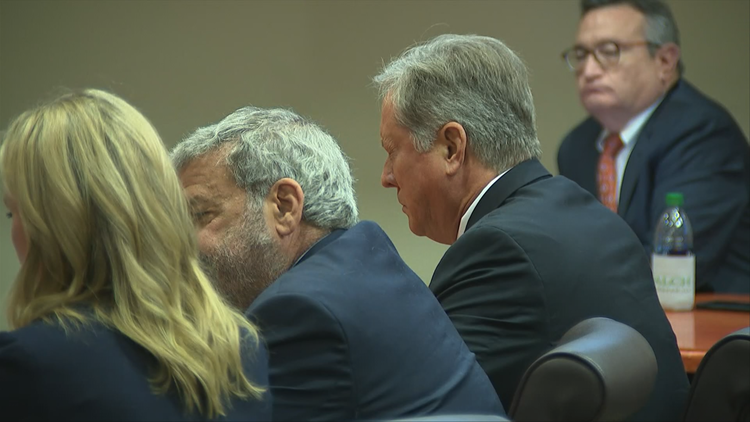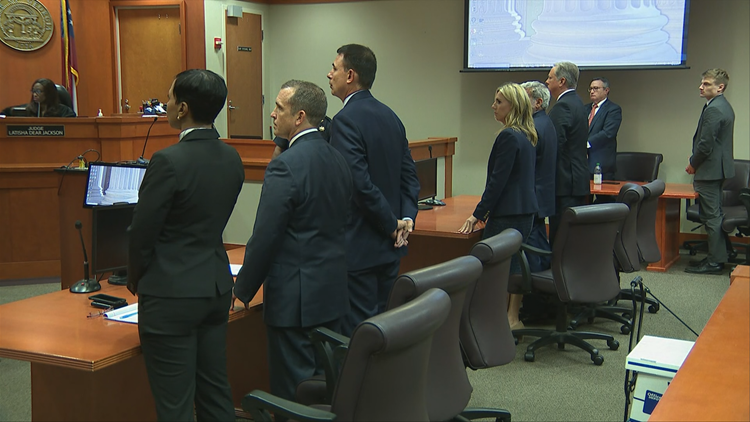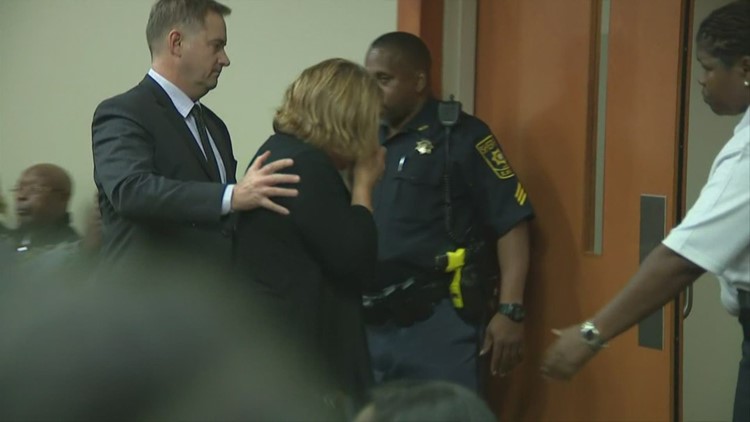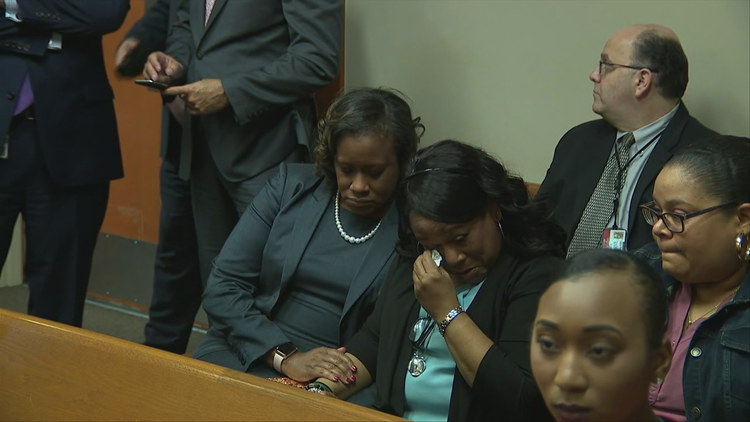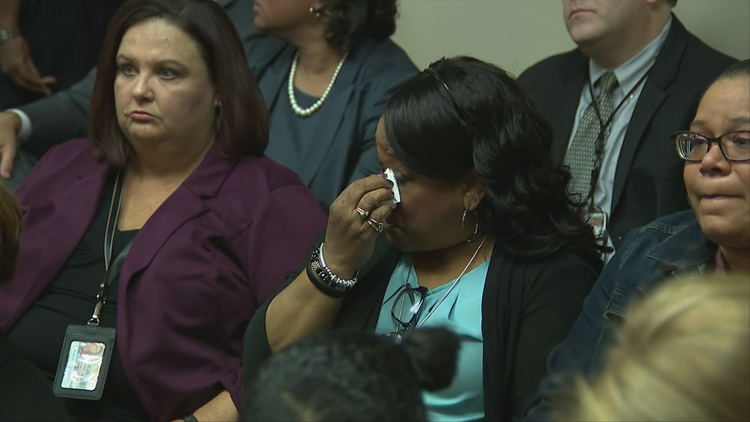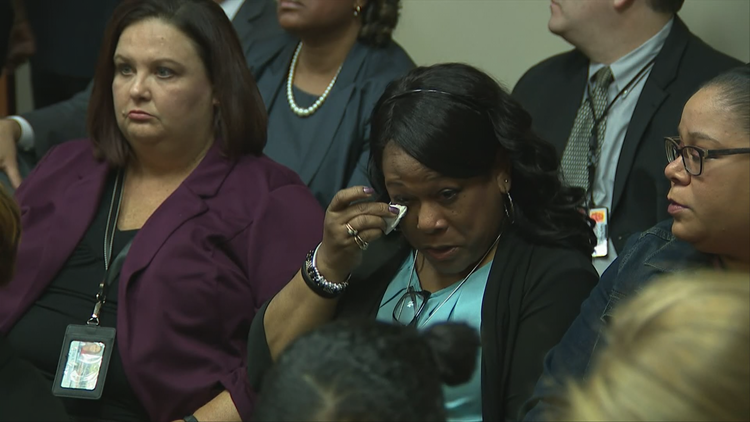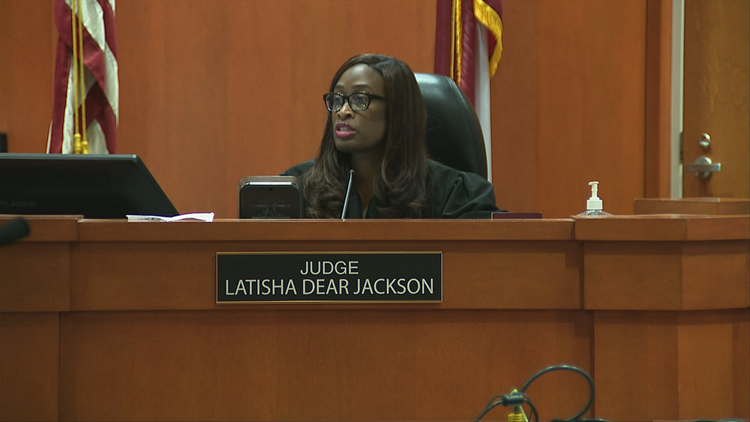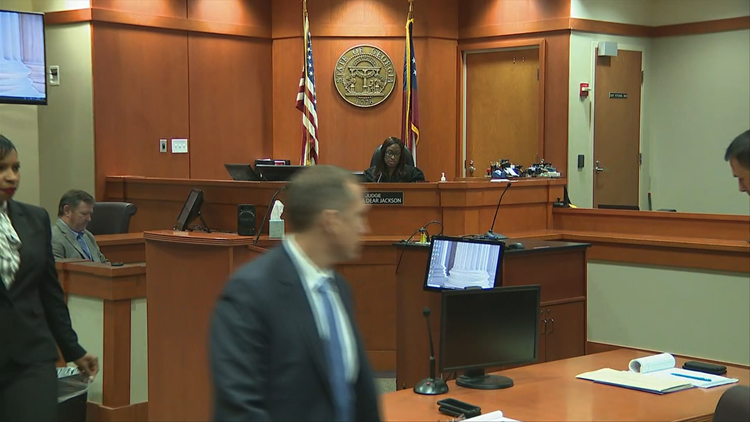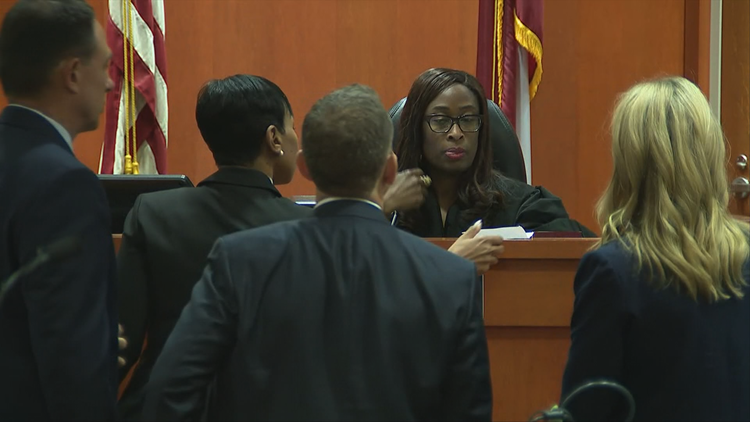DEKALB COUNTY, Ga. — There were indications early on the jury in the Robert Olsen trial was having a difficult time coming to agreement.
On the first day of deliberations, the jury asked to review numerous pieces of evidence, including transcripts and videos presented during the trial.
On the second day, they told Judge LaTisha Dear Jackson they were in agreement on some of the charges, but could not agree on others. She sent them back to deliberate.
They would become a repeating pattern over the following days, sending Judge Jackson a number of questions each day - from mundane requests for office supplies to more pressing matters related to their instructions.
Last week, they asked: "If we are unable to reach an agreement on certain counts does that invalidate the other charges we have agreed upon?"
The answer was no, and they were again instructed to resume deliberations and find a way to come to consensus. They did, finally, on Monday.
Olsen, a former DeKalb County officer on trial in the 2015 shooting death of naked, unarmed Air Force veteran Anthony Hill, was found not guilty on two counts of murder, but guilty of four other charges including aggravated assault and violation of oath by a public officer.
The verdict came 10 days after closing arguments, the jury deliberating through six sessions of court in that time.
"These kinds of cases can only seem to fracture, I think, existing fault lines," explained Case Western Reserve law professor Ayesha Bell Hardaway, who is also director of the school's Social Justice Law Center. "We do have a white officer on trial for the killing of a person of color. As much as we may not want in 2019 for that to be a factor, the way we perceive life and have had experiences based on racial demographics really does inform how we analyze and review information, and what we deem to be reasonable."
"You see death penalty cases come back quicker than this," she added.
For one point of comparison, the jury in the Amber Guyger trial in Dallas deliberated for only about five hours.
Hardaway called the circumstances in this case "really questionable" and "very disproportionate" - Olsen, a white officer, firing on Hill, a black man in the midst of a mental health crisis, who was naked and clearly unarmed, as the veteran ran at him in a situation witnesses were inconsistent in describing as threatening or not.
But, she added, "If you find yourself as a civilian who believes we shouldn't second guess officers put in a rough situation" it can be difficult to be moved on any disagreement over charges.
"Because he had to make a decision, the decision that he made is one we shouldn't second guess - we hear that lot in police use of force cases," Hardaway said.
One juror told 11Alive he wanted to find Olsen guilty of murder. But he and the others who felt that way were on the opposite side of a disagreement with those who felt the former officer shouldn't have been tried at all.
"There was people that felt like, 'this is ridiculous,'" Juror 31 said. “My little team that I had, we had to put a sketch of things together to try to convince the others that this was not self-defense. A naked man, nude, doesn’t pose a threat to a trained, professional cop. But some people didn’t find that justifiable.”
“It was very, very difficult. Very, very difficult," he added. "It was pretty much fighting a brick wall.”
In the end, Juror 31 said he and members of “his camp” compromised to reach a guilty verdict for aggravated assault, making a false statement and both counts of violation of oath by public officer.
Research at Bowling Green State University has found that in 13,000 deadly police shooting cases since 2005, only 106 officers have been charged with murder or manslaughter.
"I think all of you know that these cases are very difficult, not just here in Georgia but across the United States," DeKalb County District Attorney Sherry Boston said after the verdict. "It is very difficult to prosecute a police officer for murder under these circumstances."
"You know the question of encountering individuals who are having mental health crises and officers using deadly force in order to subdue them or to stop them is not foreign at all. The majority of them do not end up with criminal charges," Hardaway noted. "Mr. Olsen's case in some respects is unique in that way."
Verdict in Olsen trial
MORE ON THE CASE



